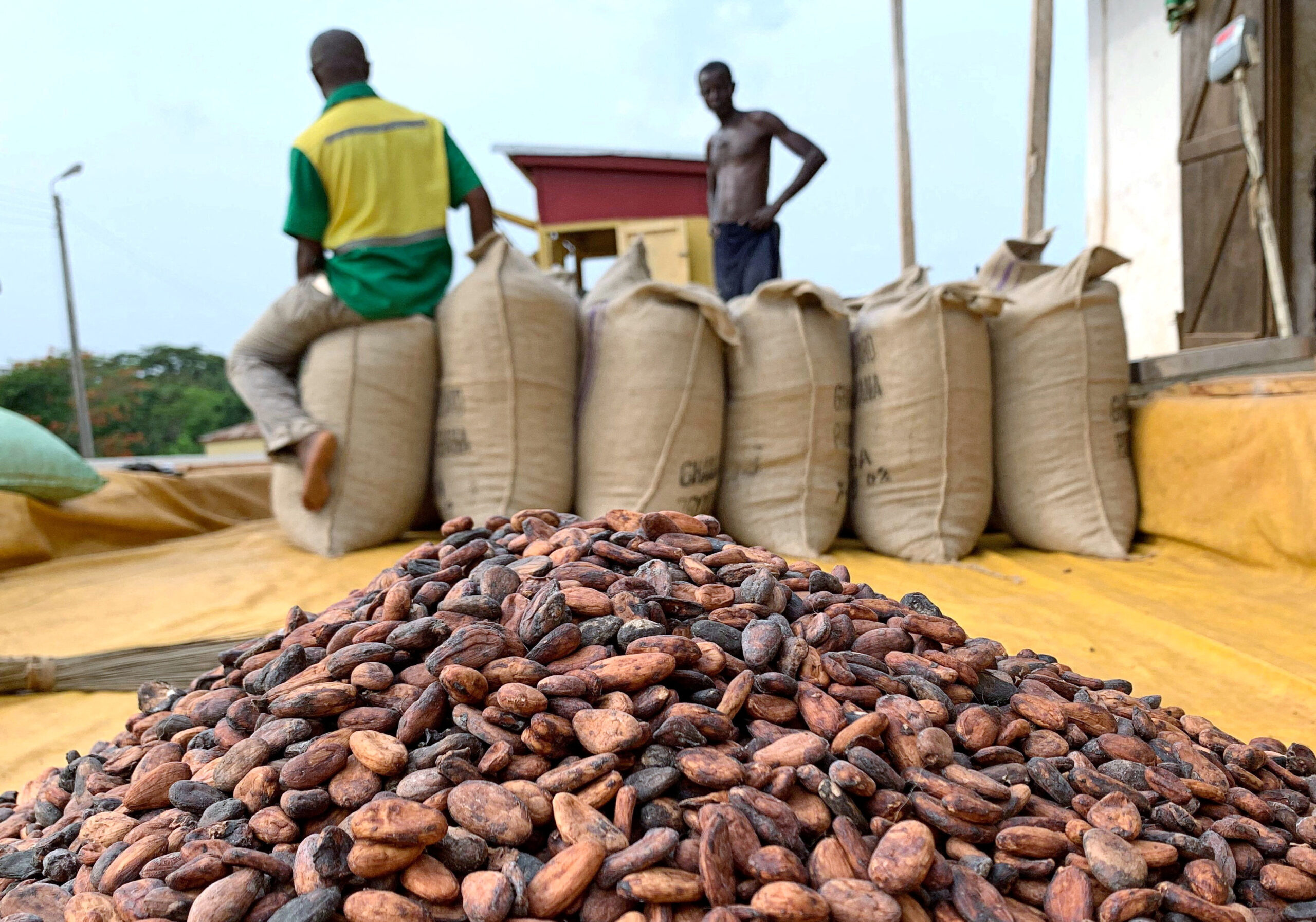
- Commodities
Cocoa crop failure worsens in Ghana
Do you want to know how to make money from this?
Register for free and get expert advice, access to a training course and webinars.
Key points:
- Ghana’s cocoa harvest has fallen significantly over the past three years, reaching historic lows.
- The decline in yield and the spread of the disease threaten Ghana’s economy, which relies heavily on cocoa bean exports.
- If no effective measures are taken, the situation could repeat itself as in the 1960s and 1970s, when cocoa yields fell by 50%.
Experts and market participants are expressing deep concern about the future of the cocoa sector in Ghana. The spread of swollen shoot disease poses a serious long-term threat to the world’s second-largest cocoa bean producer. Failure to effectively address the problem could have negative consequences for the entire industry.
New prospect for price increases
Ghana’s cocoa harvest has been in steady decline for the past three years, reaching a two-decade low last season. Despite forecasts for some stabilization next season due to favorable weather conditions, the long-term outlook for the country’s cocoa sector is a major concern.
A Reuters poll published on Wednesday estimated next season’s harvest at 640,000 tonnes, up significantly from last year but still well below the 2020/21 record.
Even if forecasts are met and Ghana’s cocoa production recovers in the short term, experts say, the sector can’t be sustained without addressing the spread of diseases.
Cocoa shoot disease threatens crop
A viral disease endemic to Ghana has significantly increased its impact on the country’s cocoa industry in recent years. Limited resources due to the economic crisis make it difficult to control the disease. One of the most effective methods of controlling swollen shoots is to uproot and burn infected trees before planting new ones.
The latest nationwide survey, conducted in 2023, showed a significant increase in the area affected by swollen shoots compared to 2017. The situation is particularly alarming in the Western North, where infestation levels have reached record highs. This indicates that the disease is spreading across the country despite the efforts to control it.
Despite claims by regulator Cocobod of success in controlling the disease, experts are concerned about the scale of the problem. Historical experience shows that swollen shoots can cause serious damage to the cocoa industry, reducing production by significant amounts. Without effective measures to combat the disease, Ghana risks repeating the negative experiences of past decades.
Swollen shoots devastated Ghana’s crops in the 1960s and 1970s, reducing production by 50 percent at a time when the country was the world’s largest producer of the chocolate ingredient.
Do you want to know
How to make money from the news
Register for free and get:
- Expert consultation;
- Access to the training course;
- Opportunity to participate in webinars

